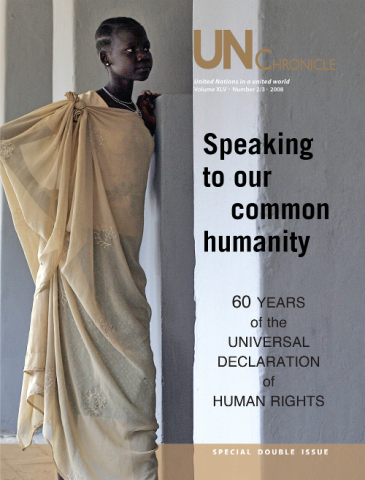

Feeding the Hungry in Africa: Not All Is Lost
Africa. This one word is sufficient to evoke images of a doomed people. Africa's population is largely ill-insured against external shocks brought about by natural disasters, adverse climate, war and conflict. It is here too that the ravages of the AIDS pandemic have been most felt. Indeed, the region is plagued by many problems which hurt its ability to ensure food and nutrition security for its people.
Losing 25,000 to Hunger Every Day
During the past two decades, population growth, improvement in incomes and diversification of diets have steadily increased the demand for food. Prior to 2000, food prices were in decline, largely through record harvests. At the same time, however, public and private investment in agriculture, especially in the production of staple food, decreased, which led to stagnant or declining crop yields in most developing countries.
Are Human Rights Universal?
On 10 December 2008, the United Nations led worldwide celebrations to commemorate the sixtieth anniversary of the Universal Declaration of Human Rights. Six decades ago, the international community affirmed that the strength of shared ideas and a common vision of respectful and peaceful coexistence could prevail over brutality, hatred and destruction.
Living Modified Organisms, At Your Nearest Store
Over the last two decades, there has been rapid advancement in the development and application of modern biotechnology -- a technology that involves taking genetic material from one organism and inserting it into another to give it a desired characteristic. This new technology is complex and arouses much debate.
The Oxford Handbook on the United Nations
Handbook is something of a misnomer for a work of this genre.The Oxford Handbook on the United Nations contents and informed analysis are on a scale that makes it invaluable to hand for learned reference. But a handbook, as such, it is not.
Tracing the Maize-Tortilla Chain
Mexico is the original source of maize and home to a wide biodiversity. Maize has always been the main staple food of Mexicans and the principal crop cultivated by its farmers for millennia. In the twentieth century, Mexico's economic growth centred around towns and cities. In the first half of the twentieth century, maize was central to a food policy motivated by the goal of self-sufficiency. Agriculture flourished because of the Green Revolution.
